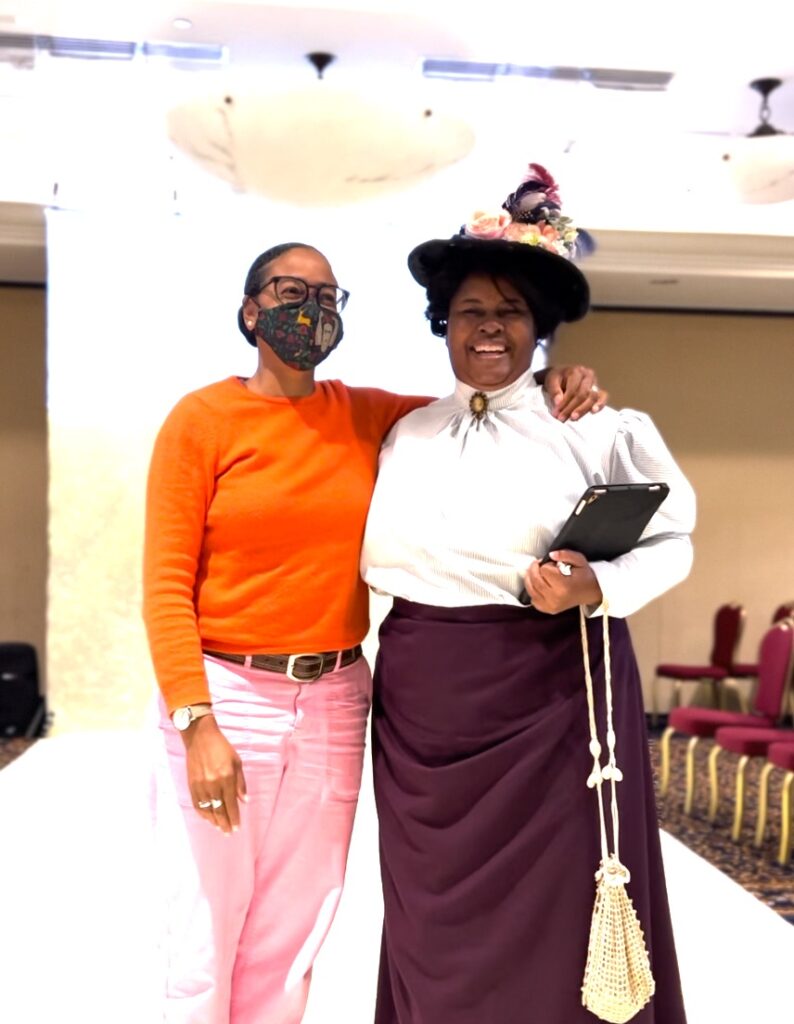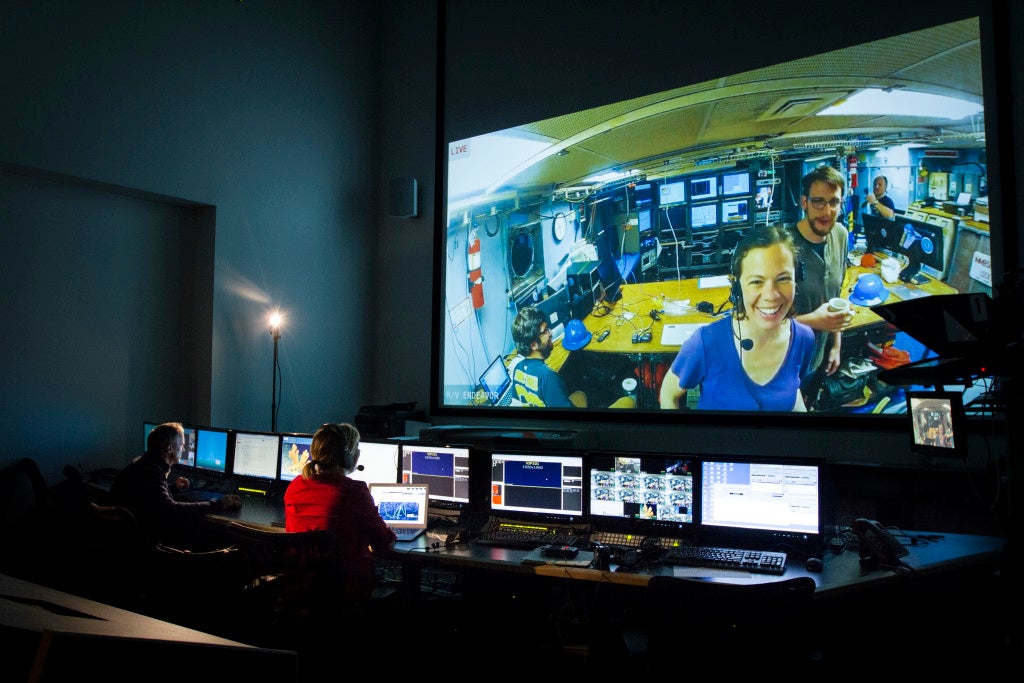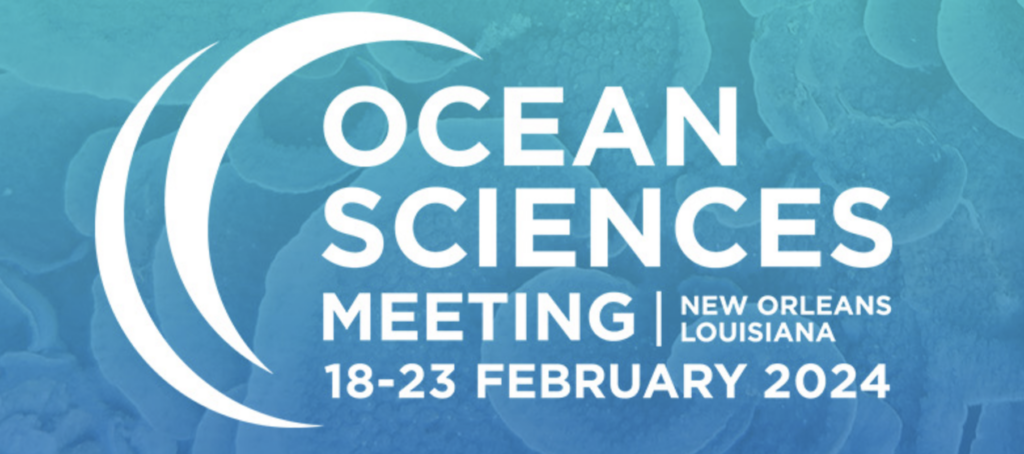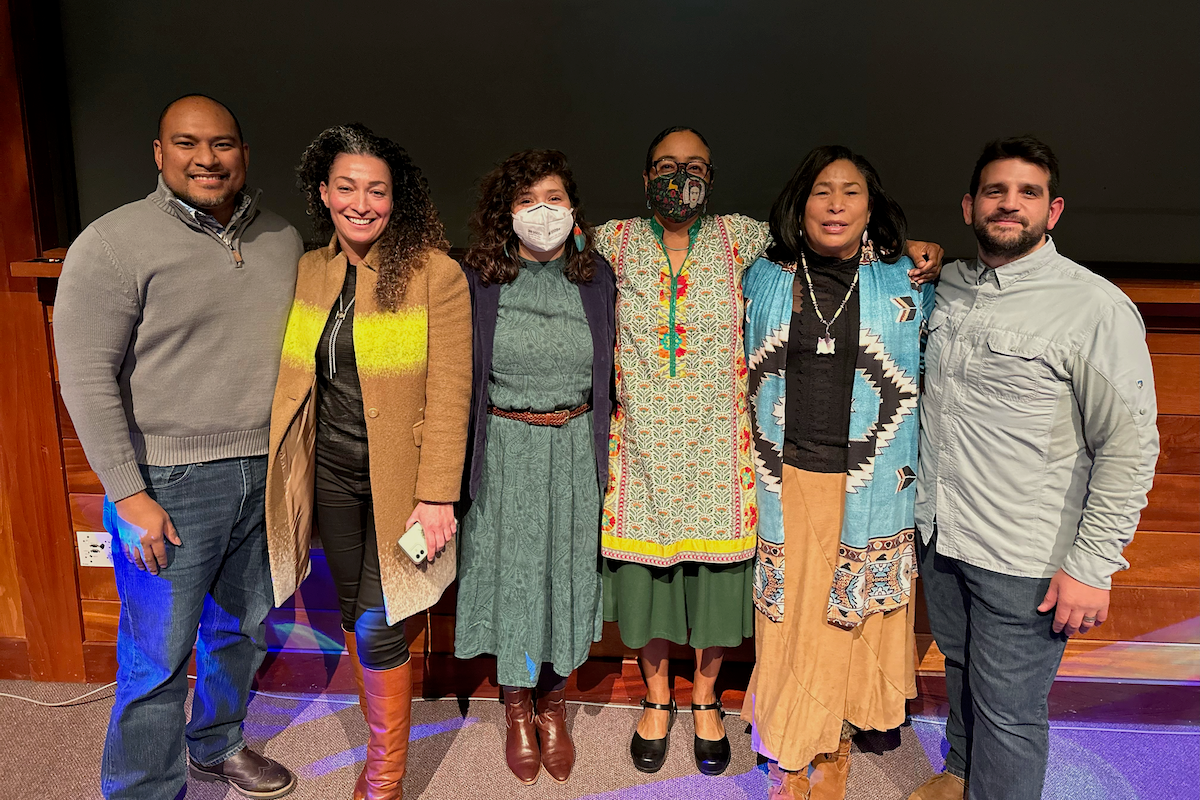KINGSTON, R.I. – Feb. 15, 2024 – The world’s premier gathering of oceanographers will begin next week in Louisiana with a little bit of a different opening, thanks to the University of Rhode Island. The throng of scientists will quickly get to the science but first, attendees will gain an immersive look at the reasons for water science and its human impact.
Invited to give the first major lecture to open this year’s Ocean Sciences Meeting (OSM) in New Orleans, URI Professor Kendall Moore was honored to be invited to give the opening presentation for the event, but wanted to step beyond the podium.
Moore decided to use the space as a platform to include — and elevate — local voices using documentary filmmaking as a tool.

On Sunday, Feb. 18, Moore and her team will create an immersive storytelling experience which features storytellers, live music, and elements of documentary film to bring attention to urgent environmental problems affecting communities in Louisiana. The work, which Moore describes as “living documentary,” will be presented to an audience of 6,000 oceanographers from across the globe, kicking off a week of information sharing at the biennial ocean science gathering.
“It’s a huge honor,” says Alex DeCiccio of URI’s Inner Space Center at the Graduate School of Oceanography (GSO), which has received support from URI’s Ocean Exploration Cooperative Institute to bring immersive storytelling experiences into scientific spaces, like this conference. “These kinds of immersive storytelling experiences help address issues of environmental justice, racism, and belonging. This program will set the tone for this year’s Ocean Sciences Meeting in New Orleans.”
The opening session — Water Tells Stories Through People — will be led by Moore and her colleagues from the University’s Inner Space Center. The program they have planned has been months in the making and is based on the immersive event held last spring at the Narragansett Bay Campus.
During the program, URI will weave together stories of four women of color who are in direct relationship to the land and water of Louisiana, to engage the audience on common ground of environmental issues and justice.

During the one-hour program, months of work will come together — but the stories shared are generations in the making. Four storytellers will present, from African-American and Indigenous perspectives, sharing the histories of these spaces in Louisiana. These voices need to be heard, Moore says.
“Each has an intimate understanding of how environmental harm and injustice have been felt at a personal level,” says DeCiccio.
On using storytelling to talk about environmental issues like climate change, he adds, “I believe storytelling will save us. It is medicine for the heart and mind. Knowledge shared through story is inherently linked to responsibility; this process brings humanity into scientific spaces.”

Several faculty and students from URI’s Graduate School of Oceanography will join Moore and the Inner Space team at the conference, presenting on global chlorophyll patterns, coastal hazards, blue whale migration, cruise ship observations in the Canadian Arctic, DNA analysis of the Northeast U.S. shelf, ocean biogeochemistry, coastal erosion and more. More than 120 conference listings at OSM 2024 will present GSO research on panels and poster presentations; see the full list here. Ecosystems ecologist Wally Fulweiler, a GSO alumnus (M.S. ’03, Ph.D. ’07), will also deliver the plenary on Tuesday morning and DeCiccio will moderate a session on Thursday, exploring storytelling and the performing arts within ocean sciences.
Documenting matters
Moore is a professor of journalism in the Harrington School and a visiting scholar at URI’s Graduate School of Oceanography, bringing the humanities and social sciences to the work happening at GSO. Her work knits the social sciences into scientific research. An award-winning documentary filmmaker, Moore has received several grants and awards for her work, including two Fulbright Scholar Awards, the Rhode Island Film Fellowship for Outstanding Filmmaking, a Metcalf Award and an NAACP award for excellence in documentary filmmaking. She is also the director of the “Can We Talk? Difficult Conversations with Underrepresented People of Color” series and has received National Science Foundation funding for her film project focusing on efforts to decolonize science. She was a fellow at MIT’s Open Documentary Lab and received URI’s Faculty Excellence Award for Diversity in 2020. Moore also serves on the board of Story in the Public Square and the Rhode Island Black Film Festival.
In addition to DeCiccio, her team for the Ocean Sciences Meeting plenary is made up of Patrick Flanagan, Ryan Campos and Faye Thomas from GSO’s Inner Space Center.
They will join a distinguished roster of guests who’ve opened recent Ocean Sciences Meetings including Tommy Esang Remengesau, Jr., past president of the Republic of Palau; Nainoa Thompson, the first Native Hawaiian in 600 years to practice the ancient Polynesian art of navigation; and Sigi Gruber of the European Commission.
Louisiana is a current focus of work for Moore. She has been working on a new grant-funded documentary there for several months now, titled Harm in the Water.
DeCiccio and Moore hope their presentation in New Orleans will help center environmental justice work at the conference.
“We’re trying to relate science to the human experience,” Moore says. “We want to underscore not forgetting what’s at the basis of scientific issues and center environmental justice. It’s been a gift to help tell these stories.”
Moore hopes the presentation adds nuance to the numbers and data sharing that will follow at the scientific conference.
“This is really an invitation for a conversation,” she says. “This work presents a narrative and shows that the University is interested in engaging on these issues. URI is invested in these problems.”
For a list of all URI GSO presenters and posters, see #0SM24.

